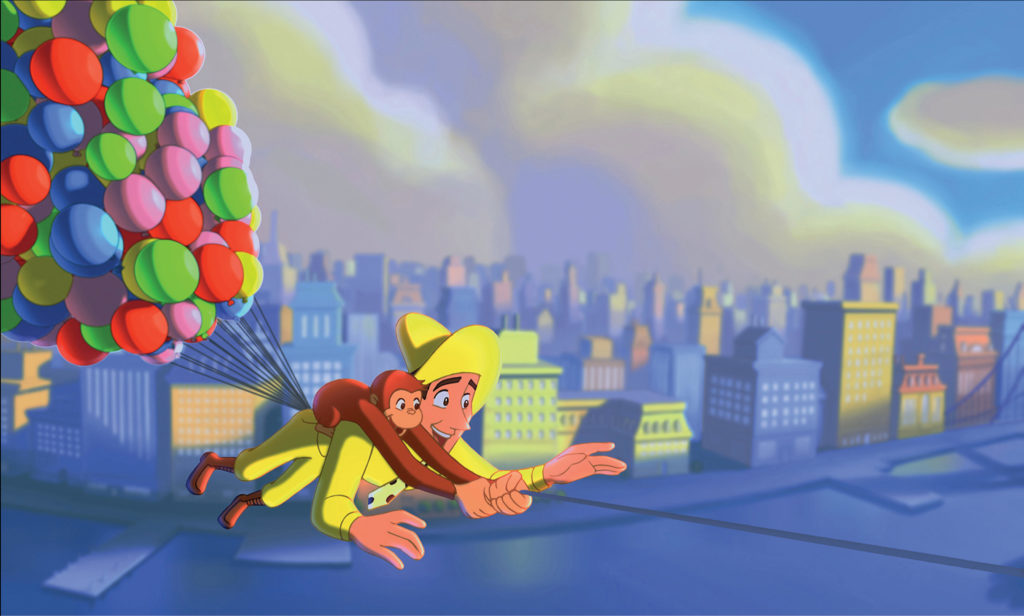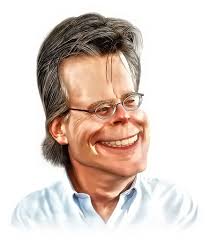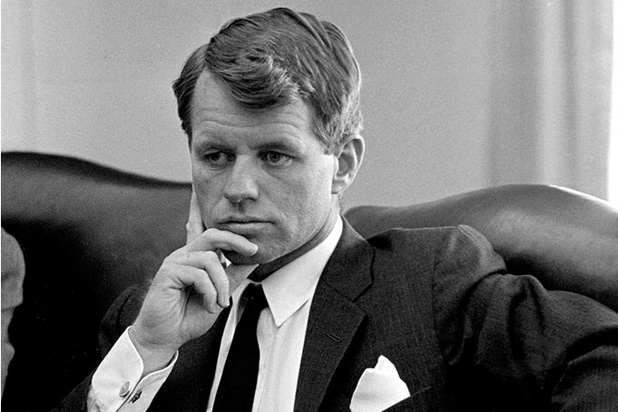
Curiosity and creativity sometimes lead to mischief. For proof, look no further than Curious George, that lovable character in children’s books who has clearly stood the test of time. George was introduced to the world by H.A. and Margret Rey in France way back in 1939.
The fact these books have extended into toys, games, clothing, and other products is proof of this little monkey’s accessibility and charm. Unless you lived a very sheltered childhood, you know George’s backstory. He was once confined to a zoo, before being rescued by the Man with the Yellow Hat.
The ongoing theme is that George has insatiable curiosity about everything. Of course, that trait often leads him into hot water – or worse. But the stories are fun – a testament to what can happen when you’re curious and untethered.
The Man with the Yellow Hat is George’s friend – and his wing man. Inherently more cautious, he consistently keeps tabs on George, helping to pull him out of trouble, often right before it’s too late. Like a sidekick on a morning show trying to hold back a rambunctious host, The Man constantly finds himself pulling his little simian friend out of trouble.
Curious George stories remind us of the power – and responsibilities – that come with having a curious, creative mind. In today’s radio environment, a few more George-like characters on radio programming, sales, and digital staffs might lead to more exciting adventures – and better ratings and more profits. Of course, they may elicit a “tsk” or two from the legal department, and perhaps even some pushback from advertisers.
Copyblogger’s Kelton Reid explains the frantic pursuit of content creation has fostered an environment of mediocrity. While we may spend time surfing the web, how often do we skip over articles that are boring, banal, or just plain uninspiring?
So, to cut through all the online content crap, droning drivel, and mindless memes, your content needs to stand out. And quoting one of the most prolific and successful writers of the past several decades – Stephen King – it comes down to two key activities;
“If you want to be a writer, you must do two things above all others: read a lot and write a lot. There’s no way around these two things that I’m aware of, no shortcut.”
things that I’m aware of, no shortcut.”
I can attest to that. New content appears every weekday on this blog – a streak we’eve kept going for nearly 14 years. Without a ton of reading and writing, JacoBLOG would have faded out long ago. Reid reinforces that notion:
Curiosity breeds creativity.
But it’s not always linear nor is it very quick. Reid quotes neuroscientist Michael Grybko:
“Creativity can be improved upon. The more you try out new things, the more skills you develop, the more creative you’ll become.”
And in reinforcement of all us consultants who know a good thing when we see or hear one, Reid reminds us that most ideas have come before. Quoting Austin Kleon:
“Every new idea is a mashup or remix of one or more previous ideas.”
 That’s why brainstorming experts like the great Gerry Tabio will tell you the best ideas often come from combining more than one nugget to form something far more powerful. Gerry understands that the power of creativity starts with curiosity, combined with working together in groups to produce creative content and ideas.
That’s why brainstorming experts like the great Gerry Tabio will tell you the best ideas often come from combining more than one nugget to form something far more powerful. Gerry understands that the power of creativity starts with curiosity, combined with working together in groups to produce creative content and ideas.
Many of us owe a debt to Curious George – and the Rey’s. His youthful energy and spirit are baked-in feelings from our childhood many of us have retained into our adult years. Oftentimes, it’s about that quality of asking for forgiveness rather than permission – a trait that sustained and thrilled his readers.
One of Bobby Kennedy‘s most popular quotes from his ill-fated run for the President in 1968 speaks to that sense of wonderment.
“Some men see things as they are and say, why; I dream things that never were and say, why not.”
That’s what separates the great programmers from the also-rans, the talent that inspires and entertains from the card readers, and the visionaries from the format mechanics.
It’s about that sense of dreaming and wondering.
In just a few weeks, we’ll mark the 38th anniversary of John Lennon’s assassination in front of the Dakota apartment building on the Upper West Side of New York City. I was working for ABC Radio, and living in Manhattan at the time – just a few short blocks away – and I can tell you that previous autumn was a hopeful, optimistic time for the often misunderstood John and Yoko.
 Lennon’s newly released album, “Double Fantasy,” was earning radio airplay, and the two could often be seen hanging around Central Park and environs, enjoying the NYC lifestyle. Earlier that fall, John granted a rare interview to Playboy magazine. There were many arcane, stilted questions about the meaning of many Fab Four songs, Yoko’s role in the Beatles breakup, the couple’s growing wealth, and the state of music. It was very well-read at the time because it had been years since Lennon had sat down for a serious conversation about a wide range of topics.
Lennon’s newly released album, “Double Fantasy,” was earning radio airplay, and the two could often be seen hanging around Central Park and environs, enjoying the NYC lifestyle. Earlier that fall, John granted a rare interview to Playboy magazine. There were many arcane, stilted questions about the meaning of many Fab Four songs, Yoko’s role in the Beatles breakup, the couple’s growing wealth, and the state of music. It was very well-read at the time because it had been years since Lennon had sat down for a serious conversation about a wide range of topics.
Near the end of the session, John talked about the Beatles legacy – not in nostalgic terms, but as a musical metaphor for progress, change, renewal, growth – and curiosity:
“If the Beatles or the Sixties had a message, it was to learn to swim. Period. And once you learn to swim, swim.”
Be curious. Try new things. Ask why not. And keep swimming.
If we’re fortunate, we’ve had influential teachers, from authors to politicians to rock stars.
Even cartoon monkeys.
- Traveling At The Speed of CES - January 10, 2025
- The One Thing Missing At CES? - January 9, 2025
- AI Your Commercials - January 8, 2025




Wonderful! Boomers learned/endured a lot growing up in the ’60s. The FM renaissance was just 50 years ago. Curious & Creative on a brave, new dial. A new growth spurt is ready & necessary to happen again. Let’s hope the CYA unimaginative text bookers can “take a joke” and insecure prejudice doesn’t get in the way of new connection. Thanks again, Fred!
Happily, Curious George is as popular today as these books were when we were growing up. Thanks for the note, Clark.